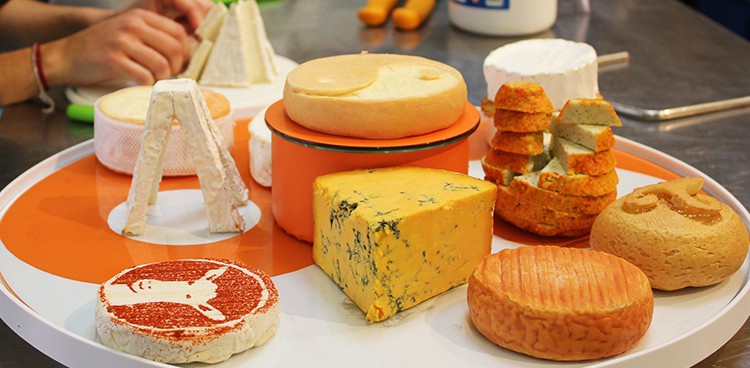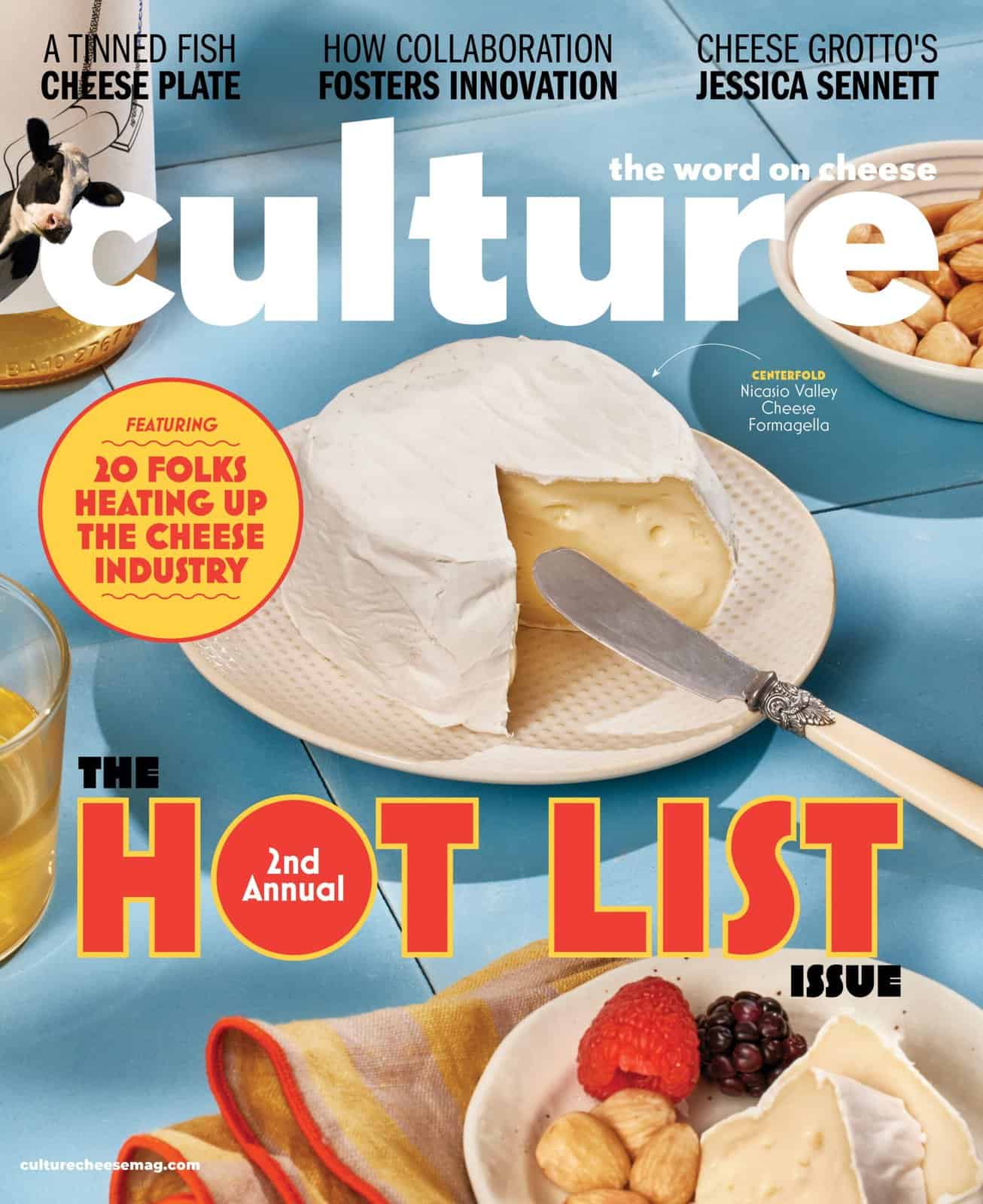
This week thousands of humans, cows, and sheep descended upon the city of Paris for the annual Salon International de l’Agriculture, one of the biggest farm- and food-related events in the world. It’s a great place to trend-spot and find out what’s what in France, which is why culture staff members are among the hordes of mammals wandering the Porte de Versailles expo center.
So what have we found? The undisputed star of the show is Cerise (“Cherry,”) a 1700-pound cow of the Southwestern French breed Bazadaise. She’s so popular I can’t even sneak by the crowds of selfie-takers to get a good shot for this blog post. Here’s a journalist who was more successful than me:
C'est fait ! Bravo @BenaimValerie ! #Cerise #PDLP pic.twitter.com/IfH8Z5PoQk
— LesPiedsdanslePlat (@PDLPofficiel) March 1, 2016
In a quieter corner of the expo center, the Salon du Fromage—an invitation-only event for members of the cheese industry—is in full swing. No cows on parade here; instead, business suits are the norm, as importers, exporters, distributors, and producers meet over cheese plates and bottles of wine to make deals.
Most of the 190 exhibitors here are French, of course, but we’ve also noticed strong showings among the Dutch, British, Portuguese, and Italians. The Irish presence is especially impressive—Crozier Blue from Cashel Farmhouse Cheesemakers was one of ten cheeses at the Salon to win this year’s “Coups de Coeur” award, while stands from Knockdrinna Farmhouse Foods, Cooleeny Farm, Cahill’s Farmhouse Cheese, Carrigbyrne Farmhouse Cheese, and the Irish food board, Bord Bia, highlight the impressive range of quality products that the dairy-loving country is pushing in mainland Europe.
Among French fromage we’re finding all the staples, especially traditional mountain cheeses from the Jura and the Alps, but some of the most creative stuff is happening in the world of chèvre. We love the new Le P’tit Fumé from Le Père Bafien, a little crottin-style round which is uniquely smoked in beech and has a smooth, subtle smokiness. We were also so happy to meet Nathalie Chevenet, a farmstead goat’s milk cheesemaker from Burgundy. Her tiny, adorable Mini Baratte—a raw milk chèvre with a blue Penicillium rind on the outside—is garnished with a piece of homemade organic straw, making it perfectly snackable alongside wine at apéro time. And she’s hoping to release a pasteurized version so that she can start exporting to the States! We can’t wait.
Among accompaniments, dried fruits are huge. After tasting quince paste Marmelada Caseira by Portuguese company Da Morgada (alongside a lovely range of Azorean São Jorge cheeses of different ages), I realized I’ve not been giving quince the respect it deserves (so much respect!). And Spanish-style dried fruit cakes are everywhere, featuring fruit and nut combos in all shapes and sizes. Some are Dutch, some from the UK, but the most impressive was the Pan de Higo (Fig and Almond Cake) from Spanish producer Paiarrop—you can find it in the US, imported by Forever Cheese under the brand name Mitica.
Aside from tasting, there was a whole bunch of other fun stuff happening. What could be more fun than tasting? Well, it was pretty great watching the Confrérie du Brie de Meaux—the “brotherhood” of Brie—induct new members. These guys wear fuzzy brie-shaped hats, sing a song about Brie, and tap the inductees with a special wooden stick while chanting “onctueuse, crémeux, savoureuse” (unctuous, savory, creamy) over and over again. Then they ceremoniously eat Brie. Being, for the first time ever, impressed with something so cult-ish, I asked General Secretary Daniel Troublé if they accept women into the brotherhood. “Mais bien sûr!” he said, solidifying my new life goal.
Then there was the Lyre d’Or competition, featuring 12 cheesemongers from all over France. Their task was to create a cheese plate for 15-20 people in orange and white, with all eight cheeses being seasonal and at least five of them AOP-protected.
The winner, Cindy Skiba from Calais in the north of France, impressed the judges with a Pouligny-Saint-Pierre that was cut diagonally and filled with sesame nougat, a Brocciu with little jellied myrte balls, and an Ecume de Wimereux filled with cinnamon and confit orange.
But hey—Americans! Where y’all at? I was in complete despair to find zéro cheeses from across the pond, until I stumbled on some flavored wheels of Sartori BellaVitano on display at the Fransial booth—one of the few companies brave enough to import stateside cheeses into the crowded French market. I’m not surprised that BellaVitano can compete here, though, after noticing how many cheeses and butters at the Salon are aromatisé; creative flavor combinations are definitely en vogue. If innovation—in addition to quality—is appreciated by the French, as it increasingly seems to be, then we see no reason why US cheeses can’t nudge their way into the hearts and mouths of Salon-goers in the future. Allez les Américains!











Hi, I’m looking for the stink cheeses; crotte du diable & Vieux boulogne (sable du Boulonnais) greetings from Maastricht – Johnnie.
Hi, I’m looking for the stink cheeses; crotte du diable & Vieux boulogne (sable du Boulonnais) greetings from Maastricht – Johnnie